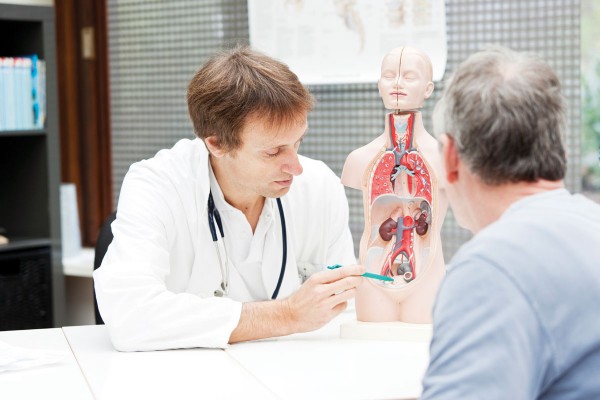Trouble urinating. Weak urine flow. Frequent urination or frequently getting up in the middle of the night. While many men chalk these symptoms up to “getting older,” they are often a sign of an enlarged prostate.r
An enlarged prostate is one of the most common problems among men over 50. The good news is that, in many cases, the symptoms caused by an enlarged prostate can be relieved with medical advice, says Chad LaGrange, MD, urologist at Nebraska Medicine. By age 60, about a half of men will have an enlarged prostate and by age 85, that number climbs to 80 percent.
Living with these symptoms can be uncomfortable, embarrassing, and can prevent you from getting a good night’s sleep, notes Dr. LaGrange. Some men may even avoid leaving the house for any longer length of time for fear of bladder leakage.
“Many men will put up with these symptoms for months until they become intolerable before seeing a doctor,” says Dr. LaGrange. “This can result in permanent damage to the kidneys and bladder. It’s always important to see a doctor early on to determine if it’s something that needs treatment and to rule out more serious problems like an infection or prostate cancer.”
The prostate grows throughout a man’s life. As it enlarges, the layer of tissue surrounding it stops it from expanding. This causes the gland to press against the urethra like a clamp, which can obstruct the flow of urine. Over time, the constant straining of the bladder muscle may cause it to become thicker and overly sensitive, causing it to contract with just small amounts of urine, resulting in the need to urinate frequently. Eventually, as the urethra opening becomes more restricted, the bladder cannot completely empty, which can lead to a urinary tract infection or kidney and bladder damage.
“Oftentimes, an enlarged prostate is not a serious problem and can be treated with lifestyle changes and behavior modification,” says Dr. LaGrange. “Medications are available that can shrink the prostate and relax the muscles in the prostate so the flow is better. Our goal is to avoid surgery untilrabsolutely necessary.”
Ultimately, treatment will depend on your symptoms, how severe they are, and whether you have other medical conditions, notes Dr. LaGrange. If you are not able to urinate at all, have significant bleeding, kidney failure, or are not responding to medical therapy, you may be a candidate for surgery. Resection of the tumor growth that is pressing against the urethra is the most common surgery for an enlarged prostate. The risks and benefits should be discussed thoroughly withryour physician.
“A lot of men think these problems are a normal part of aging and they just have to live with them,” notes Dr. LaGrange. “Just remember, if you are experiencing these symptoms, you are not alone, and in most cases, we can help you greatly reduce your symptoms with the appropriate medical therapy.”














